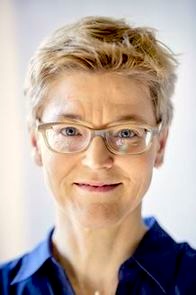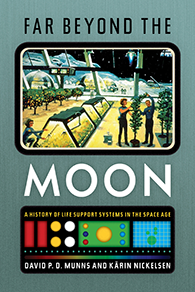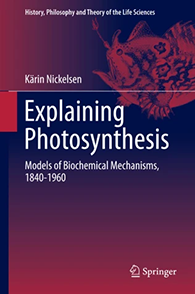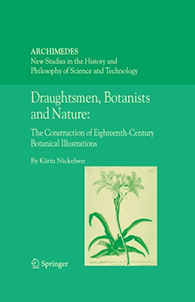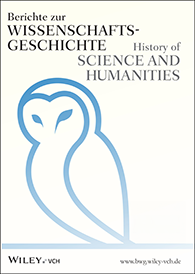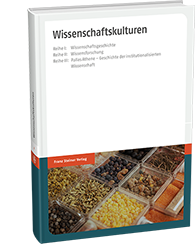Kontakt
Besucheranschrift: Ludwig-Maximilians-Universität, Historisches Seminar, Schellingstr. 12
Raum:
K215
Telefon:
+49 (0) 89 / 2180-5508
E-Mail:
K.Nickelsen@lmu.de
Sprechstunde:
Dienstag, 15-16 Uhr
Donnerstag 13:30-15:30 Uhr
(Vergabe per Liste vor K215)
Forschungsschwerpunkte
- Geschichte der experimentellen Lebenswissenschaften 19./20. Jhd.
- Klassische Naturgeschichte um 1800
- Prozesse der wissenschaftlichen Modellbildung
- Individuelle und kollektive Forschungsmethodologien
Kurzvita
Kärin Nickelsen ist seit dem Wintersemester 2011/12 Professorin für Wissenschaftsgeschichte an der Ludwig-Maximilians-Universität München und seit 2019 Studiendekanin am Historischen Seminar. Davor hatte sie von 2002 bis 2011 eine Juniorprofessur für Wissenschaftsgeschichte und -philosophie an der Universität Bern inne. Als Visiting Scholar forschte Kärin Nickelsen unter anderem am Max-Planck-Institut für Wissenschaftsgeschichte in Berlin und an der University of Illinois.
Kärin Nickelsen ist 2024/2025 Fellow am Wissenschaftskolleg zu Berlin.
Einen ausführlichen Lebenslauf finden Sie im Curriculum Vitae (englisch).
Forschungsprojekte
Aktuelles Forschungsprojekt: Histories of Plants and Cultures, ca. 1840–1920
The relationship between history and the life sciences has often been the subject of debate. One of the most recent examples is the rise of archaeogenetics; but these debates have a long history.
The project sets out to explore controversies along similar lines between European nineteenth-century scholars, with archaeology, history, and oriental studies on one side, and botany, zoology, and chemistry on the other. One of the particularly contested questions was how the history of culture and civilizations ought to be written, and who was entitled to do so. Botanists claimed a special role in this field, as the beginning of human culture presumably was linked to the beginning of agriculture, i.e., the cultivation of crops, about which the plant sciences (arguably) were much more competent than scholars from the humanities.
The project examines how this agenda of a history of cultivated plants, hence: civilisation, unfolded, and how the humanities reacted. It thus sheds light on a little-known area of overlap between the so-called “two cultures” that gave rise to lively (and often constructive) debate between natural scientists and humanists about their different methodologies, conventions, and expertise, well beyond the worn-out dichotomy of “understanding” vs. “explaining.”
DFG-geförderte Forschungsprojekte
- DFG Forschergruppe „Kooperation und Konkurrenz in den Wissenschaften“ (Sprecherin: Prof. Dr. Kärin Nickelsen) (DFG-Projektnummer: 316001474)
- Value for Money? Kooperation und Konkurrenz im Human Genome Mapping Project (DFG-Projektnummer: 316001474)
- Aggression, Konflikt und Frieden: Wissenschaftliche Auseinandersetzungen mit "Aggression" in Westdeutschland, 1963 - ca. 1985 (DFG-Projektnummer: 505755701)
- Pflanzen für Palästina! Naturwissenschaften im Jischuw, 1900-1930 (DFG-Projektnummer: 245165702)
- Die Künstler der Naturgeschichte. Eine Studie zur Kooperation von Zeichnern, Kupferstechern, Druckern und Naturforschern im 18. Jahrhundert (DFG-Projektnummer: 282653476)
- Konkurrenz der Disziplinen. Die Aushandlung von Deutungshoheit zwischen Bio- und Sozialwissenschaften, ca. 1970-1990 (DFG-Projektnummer: 316166947)
- Auf der Suche nach den Mechanismen des Lebens: Interdisziplinäre Kooperationen an der Schnittstelle von Biologie, Chemie und Physik, 1918–1939 (DFG-Projektnummer: 403962374)
Weitere Informationen zu Forschungsschwerpunkten und -projekten des Lehrstuhls finden Sie hier.
Monographien
Publikationen (aktuelle Auswahl)
Eine vollständige Publikationsliste finden Sie im Curriculum Vitae (englisch)
- Munns, D.P.D.; Nickelsen, K. (2021): Far beyond the Moon: A History of Life Support Systems in the Space Age (Pittsburgh Univ. Press).
- Keuck, L.; Nickelsen, K. (Eds., 2022): On Epistemic Times: Writing History 25 Years after Synthesizing Proteins in the Test Tube, Berichte zur Wissenschaftsgeschichte, Vol. 45/3 (2022). (240 pages).
- Krämer, F.; Nickelsen, K.; Suffrin, D. (2022): Botany and the science of history: Nature, culture, and the origins of civilization, ca. 1850-1900. Isis 113 (2022), pp. 45-62.
- Nickelsen, K. (2021): Cooperative division of cognitive labour: The social epistemology of photosynthesis research. Journal of General Philosophy of Science 53 (2022), 23-40. DOI: 10.1007/s10838-020-09543-1. Online first: http://link.springer.com/article/10.1007/s10838-020-09543-1 (19 March 2021).
- Musil-Gutsch, J., Nickelsen, K. (2020): Ein Botaniker in der Papiergeschichte: Geschlossene und offene Kooperationen in den Wissenschaften um 1900. NTM. https://rdcu.be/b1TXN.
- Soutschek, L., Nickelsen, K. (2019): "Zusammenwirken" oder "Wettstreit der Nationen"? Kooperation und Konkurrenz in der deutschen Antarktisexploration um 1900. NTWM 27/3 (2019), S. 1-35. https://doi.org/10.1007/s00048-019-00215-w.
- Munns, D., Nickelsen, K. (2017): To Live among the Stars: Artificial Environments in the early Space Age. History and Technology 33/3, S. 272-299. https://www.tandfonline.com/doi/full/10.1080/07341512.2018.1453911.
- Nickelsen, K. (2015): Explaining Photosynthesis. Modelling Biochemical Mechanisms 1840-1960. Springer, Dordrecht u.a. (Series: History, Philosophy and Theory of the Life Sciences, Vol. 8).


